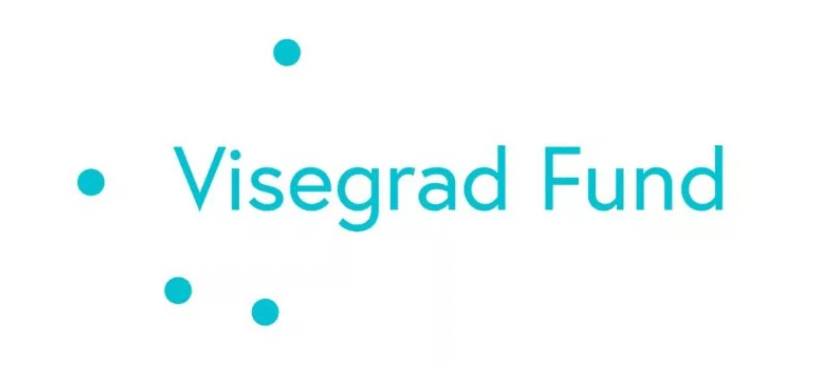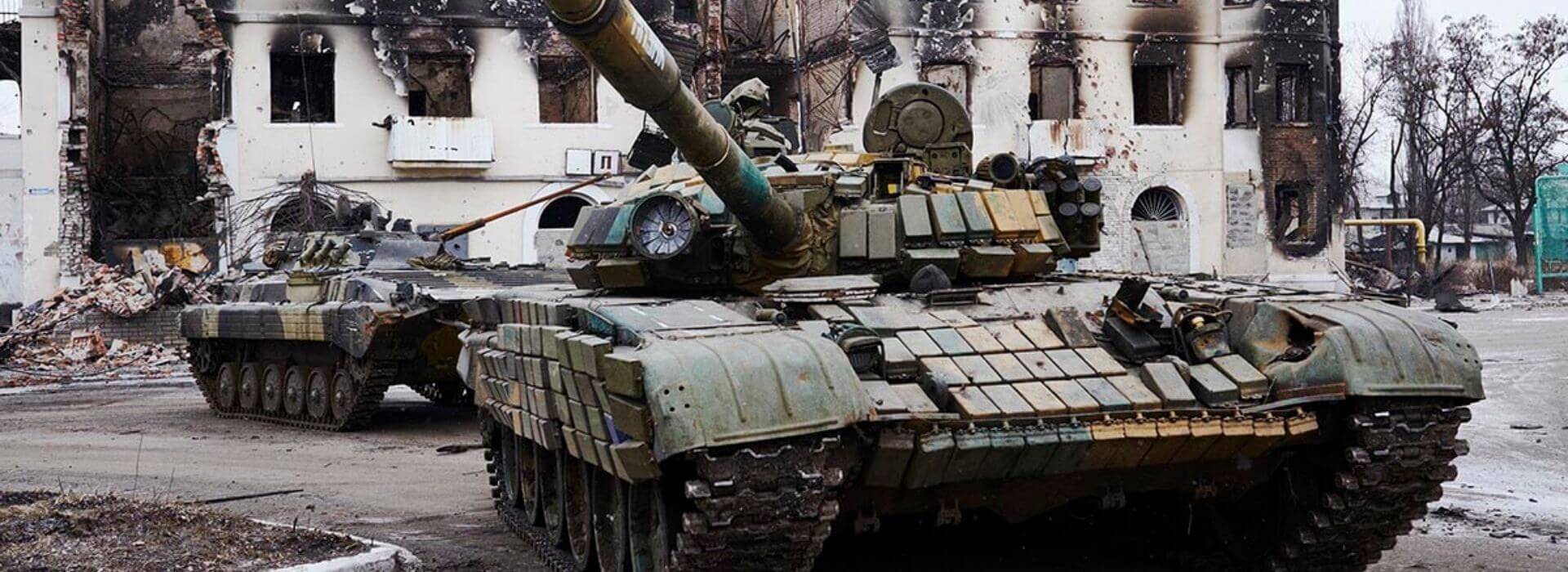The full-scale war that Vladimir Putin unleashed against Ukraine under the far-fetched pretext of protecting the Russian-speaking population of eastern Ukraine from genocide resulted in an incomparably turbulent reaction throughout the world. The Kremlin regime chose a path of direct aggression, sending troops into Ukrainian territory from different directions – first from Russia, then Belarus – then launching missile and bomb attacks on Ukrainian cities and villages, ruthlessly killing civilians, and damaging and destroying military and civilian infrastructure.
The entire world in support of Ukraine
The entire civilized world, horrified by what was happening, quickly shifted its focus to a policy of isolating Russia, bringing down strong, hitherto unprecedented political, diplomatic, personal, and economic sanctions on the Kremlin. At the same time, almost the entire Western community began to provide massive assistance to Ukraine with weapons and military supplies, providing portable anti-tank and anti-aircraft guided missiles, grenade launchers, mortars, small arms (rifles, assault rifles, and machine guns), equipment, vehicles, and personal protective equipment for military personnel. There were even reports, citing Josep Borrell, EU High Representative for Foreign Affairs, that individual NATO countries – former Warsaw Pact members – were intending to transfer part of their air force flee to Ukraine, providing aircraft in Ukraine with the possibility of landing in a Central European country that was also a NATO member (though so far there has been no movement on this). Moreover, those Western countries (e.g., Germany) that until recently opposed the supply of weapons to Ukraine, arguing that this could provoke Russia into aggressive actions have become active participants in the intense process of supplying defense equipment to Ukraine.
Russia’s fifth column in Slovakia before the attack
Slovakia has taken a clear position on Russia. At emergency summit meetings in both the European Union and NATO, Slovakia supported the introduction of the most stringent measures. Traveling to Brussels after the Russian attack on Ukraine, Slovak President Zuzana Čaputová said that the sanctions proposed by the EU were insufficient and needed to be tightened (which, in the end, was the case, thanks to her).
Those who have a general idea of how the situation in Slovakia has developed in recent weeks and months can appreciate such a principled position. The fact is that in Slovakia, for at least the past six months, pro-Russian forces, including parliamentary and non-parliamentary opposition parties, acting on the instructions of Moscow, have been waging a propaganda attack on the government-led process of signing and ratifying a defense cooperation agreement with the U.S.
They organized gatherings of like-minded people, spreading false information about the content of the treaty and the consequences of its ratification, incited anti-Western and anti-American sentiments, accused community representatives that supported the signing of the treaty of treason, and took part in Russian media aggression against the West. Their efforts, though not crowned with success (the treaty was eventually adopted by parliament and ratified by the president), nevertheless influenced public opinion in matters of foreign and defense policy.
According to polls, by the end of 2021, the share of those who considered it necessary to conclude this agreement had decreased. At the same time, the level of support among the people for the country’s membership in NATO had decreased.
After the ratification of the Slovak-American treaty in early February 2022, pro-Russian forces did not quiet down at all, and thanks to them help arrived in the form of Russia’s military maneuvers around neighboring Ukraine, accompanied by diplomatic activity (primarily after the Kremlin presented absurd ultimatums to the U.S. and NATO that included impracticable demands for security guarantees for Russia, NATO’s retreat to the 1997 borders, etc.).
Pro-Russian Slovak activists, including prominent politicians, have joined the campaign to justify Russia’s actions, arguing that Russia is not actually taking aggressive action, that it only cares about its legitimate security interests, and that Russia’s actions on the border with Ukraine are routine military exercises that each state has the inalienable right to conduct on its territory without threatening anyone. Ľuboš Blaha, a former leader of the local Communist Party and member of parliament from the Smer-SD party, who at one fine moment rebranded himself a «social democrat» and who is known for his pro-Putin views, went further than anyone else. Today he can accurately be described as a «communo-fascist.» He has said that the possibility of Russia’s war against Ukraine is a monstrous «hoax» – a fabrication with the aim of discrediting the peace-loving policies of the Russian state. On February 23, the day before the start of the Russian army’s invasion (that is, the day after Putin announced Russia’s recognition of the DPR and LPR terrorist «republics»), while speaking at a meeting with Slovak parliamentarians, Russian Ambassador Igor Bratchikov laid out these «peace-loving» policies with the help of Smer-SD deputies, who apparently asked him questions conveniently prepared in advance.
February 24: a shock for citizens and inspiration for trolls
The Russian invasion of Ukraine, accompanied by bombing and rocket attacks, shocked Slovakia. Unlike Russia, in which the Kremlin authorities convinced the population of the peaceful nature of the special operation (which was fully consistent with what was being shown on Russian television), the Slovak population received on all media platforms a true picture of what was happening in its neighboring country, including the bombing of cities, residential areas, universities, hospitals, oil storage facilities, and the death of civilians, women, and children.
The primary Slovak pro-Russian troll Blaha fell silent on the morning of February 24, however, quite expectedly. The attack by the Russian Mordor on peaceful Ukraine was so monstrous, and Blaha’s «forecasts» only a day before the invasion so differed from what happened that even this unscrupulous conductor of Russian influence considered that it would be best for him to lie low and go into the shadows, at least for a little while.
But it would be a mistake to think that all Slovak pro-Russian actors would go into the shadows even after such a shocking show of aggression and stay quiet. No, they haven’t remained silent.
Blaha’s baton was taken by two other well-known members of the Slovak government. One of them, former Prime Minister and Minister of Justice and current head of the Slovak-Russian Society (one of the main pro-Russian lobbying organizations in Slovakia), Jan Čarnogurský, commented enthusiastically on the developments in Ukraine in the evening of the same day on the disinformation-conspiracy internet radio Slobodný vysielač (Free Broadcaster). Čarnogurský argued that the Russian army was not fighting in Ukraine, as there was no one to fight with, since Ukrainian servicemen, on the advice of Vladimir Putin, were allegedly surrendering to the advancing Russian army, citing reports published in Russian media as a source. With undisguised joy in his voice, Čarnogurský reported that already in the evening of the same day the Russian army occupied a military airfield 20 kilometers from Kyiv. «It is wonderful!» he exclaimed on the radio. «The Russian army has occupied or bombed military airfields, achieving its objectives masterfully,» he continued.
With great understanding (and tacit approval) the former Slovak prime minister reacted to the Kremlin’s desire to «disarm» and «denazify» Ukraine, agreeing that «denazification» would mean a change in the political regime there. Expressing satisfaction with the success with which the Russian army was carrying out its duties, Čarnogurský expressed disappointment with the position taken by Czech President Miloš Zeman in Russia’s war against Ukraine. He supported Russia up until the very last, demonstrating undisguised sympathy for Vladimir Putin. After Russia invaded its neighboring country, however, he called the Russian leader a «madman.»
The day after the Russian invasion, another former Minister of Justice (and a retired Chief Justice and unsuccessful candidate in the last presidential elections in Slovakia) and pro-Russian troll, Štefan Harabin, came to the fore. He gave a simply nauseating, sadistic description of the causes of the Russian-Ukrainian conflict: «It is the duty of the Russians to neutralize the Nazis, who, through genocide, have killed 15,000 of their own citizens since 2014.»
Three days after the entry of Russian troops, when Putin began to threaten the West with a world nuclear war, the communist fascist Ľuboš Blaha crawled out of his temporary online shelter and in full accordance with his delusional ideas regarding the causes of the conflict in Ukraine and the confrontation between the West and Russia, began to accuse Slovak leaders of fomenting the war, maintaining that it was their actions that were leading to an escalation of tension: «You want to be responsible for a nuclear war, you crazy people? The Russians announced that they were putting their nuclear forces on alert. This is where the jokes end. Čaputová [President of Slovakia], Naď [Minister of Defense], Korčok [Minister of Foreign Affairs] – do you really want to be responsible for a third world war? To mention even a fraction of his beloved Putin’s responsibility did not even occur to Blaha.»
Effect of the attack
The invasion of Kremlin troops into Ukraine had a direct impact on public opinion. If before the invasion, according to sociological surveys, only 37% of respondents considered Russia responsible for unleashing the conflict between the two neighboring countries, and 44% of respondents believed that the U.S. was responsible, then a few days after the invasion and the start of shelling and bombing 62% of respondents were already convinced that Russia was responsible. 25% of respondents blamed the U.S. The level of support for Slovakia’s membership in NATO also increased to 55.5% of respondents.
The Slovak parliament passed an expedited amendment to the country’s security law, which gave the National Security Office (NBÚ) the power to shut down disinformation resources that act as conduits for hostile foreign influence. The first result of this was having the NBÚ announce the closure of the main mouthpiece of pro-Russian propaganda – the online newspaper Hlavné správy (Main News) – in which stories and messages often appeared related to the trio of authors mentioned in this article: Blaha, Čarnogurský, and Harabin. From now on they will not appear there.

Материал доступен на русском языке: Российское вторжение в Украину и пятая колонна кремля в Словакии










